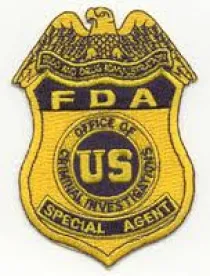The Draft Guidance
On January 13, 2014 the FDA issued draft guidance on the requirements for postmarketing submissions of interactive promotional media for drugs and biologics. The draft guidance provides valuable clarification of when the FDA will hold a company responsible for promotional content on social media.
The draft guidance defines “interactive promotional media” as “modern tools and technologies that often allow for real-time communications and interactions” (including blogs, microblogs, social networking sites, online communications, and live podcasts) used to promote a drug. The draft guidance states that product communications will be subject to postmarketing submission requirements if carried out directly by or on behalf of a manufacturer, packer, or distributer (a “firm”). A firm is accountable for product communications if the firm, or someone acting on its behalf, is “influencing or controlling the product promotional activity or communication in whole or part.” In detail:
-
a firm is responsible for product promotional communications on sites that are owned, controlled, created, influenced, or operated by, or on behalf of, the firm. If a firm collaborates on or has editorial, preview, or review privilege over the content provided on a site, it will be viewed as having the requisite “influence”;
-
a firm is responsible for promotion on a third-party site if the firm has any control or influence over the third-party site, even if that influence is limited in scope (but not if the firm solely provides financial support). If a firm directs the placement of the promotion on a third party site, it may be viewed as having the requisite control or influence; and
-
a firm is responsible for the content generated by an employee or agent who is acting on behalf of the firm to promote the firm’s product. FDA will not ordinarily view user-generated content as content “on behalf of the firm” as long as the user has no affiliation with the firm and the firm otherwise has no influence over the user-generated content.
The draft guidance also makes recommendations for meeting submission requirements where real-time information is continuously posted and shared on various platforms. FDA will exercise enforcement discretion regarding the submission of such interactive marketing content if:
- a firm submits all sites for which it is responsible at the time of initial display;
- a firm submits the home page and interactive page of any third-party sites on which the firm’s participation is limited to interactive or real-time communications; and
- a firm submits monthly updated listings of all non-restricted sites for which it is responsible or is an active participant that include interactive or real-time communications.
Takeaways
The draft guidance indicates that, as with print media, the FDA will hold firms responsible for online promotion of their products. Firms must remain informed of all of their online product endorsements. Fortunately, in this draft guidance, FDA has acknowledged that interactive promotional media has characteristics that make it distinct from traditional media. Accordingly, FDA is willing to regulate the use of these platforms differently. Since firms cannot always control the content on interactive media sites, FDA recognizes that it would be unreasonable to require constant postmarketing submission updates.
Interested parties may submit comments on the draft guidance until April 14, 2014 with final guidance to be released no later than July of this year. Industry representatives are hopeful that the final rules will foster robust online communication about medicines that are beneficial to patients.
Krissa Webb, law clerk, also contributed to this article.





 />i
/>i
